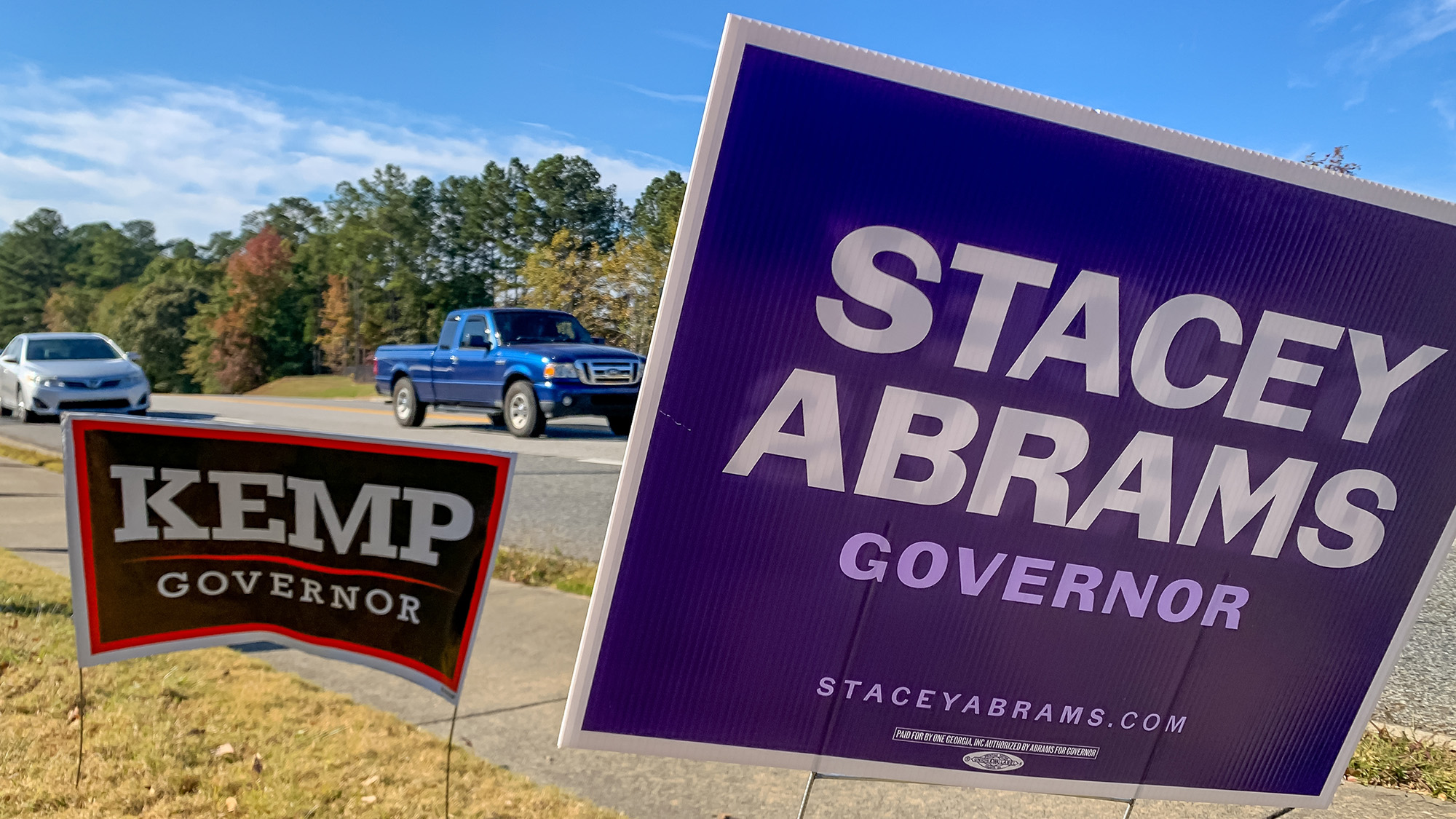Brown v. Kemp
- November 8, 2018

Overview
In November 2018, Georgia gubernatorial candidate Brian Kemp resigned from his position as Secretary of State in response to a lawsuit brought by a group of Georgia voters. The lawsuit asked the U.S. District Court in Atlanta to enjoin Secretary Kemp from exercising any further powers of the Secretary of State’s Office in presiding over the 2018 general election, in which he himself was a candidate. Kemp claimed he resigned in order to begin working on a transition to the governor’s role, but the timing made clear that his move was prompted by the lawsuit.
Larry Schwartztol, Counsel for Protect Democracy which brought the suit on behalf of the voters, said: “This is a huge victory for democracy and the rule of law. It is a basic constitutional principle that a person may not be a judge in their own case, and that’s what Brian Kemp was attempting to be here. Let this be a lesson for the future: Government officials may not misuse their offices to unfairly tilt the playing field in elections in which they are a candidate. Doing so violates the Constitution, and today proves that Americans and our court system stand at the ready to stop that from happening should it ever be attempted again.”
Emergency legal papers in the case were filed at 5pm on Election Day 2018 on behalf of five Georgia voters: LaTosha Brown, Jennifer N. Ide, and Katharine Wilkinson of Fulton County; Candace Fowler of Dekalb County; and Chalis Montgomery of Barrow County. The plaintiffs sought a temporary restraining order barring Secretary Kemp from being involved in the counting of votes, the certification of results, or any runoff or recount procedures that would normally be exercised by the Secretary of State’s Office or the Board of Elections, on which he also sat at the time. The lawsuit cited efforts by Secretary Kemp to use the official powers of the Secretary of State’s Office to make an unfounded accusation against his opponent’s party and post that accusation on the Secretary of State’s official website, promoting it through the Kemp campaign’s political channels. The lawsuit alleged that this was merely the latest and most extreme misuse of the Secretary’s position to try to give himself an unfair advantage in his race for governor.
Two federal courts had previously ruled against Secretary Kemp in cases where he was accused of violating the law. In one case, a federal judge ordered Secretary Kemp to instruct election officials to stop summarily discarding absentee ballots that contained signature discrepancies. In another case, a federal judge struck down a restrictive “exact match” policy implemented by Secretary Kemp that had jeopardized the ability of over 3,000 individuals to vote because their voter registrations had minor discrepancies with their official identification documents. Election law scholar Rick Hasen described Secretary Kemp’s actions as “perhaps the most outrageous example of election administration partisanship in the modern era.” And election law expert Michael McDonald described Secretary Kemp’s conduct as “an appalling abuse of power” that “undermines democracy and hurts confidence in the work done by professional election officials across the nation to run fair elections.”
The plaintiffs were represented in the case by Protect Democracy; former United States Attorney for the Middle District of Georgia Michael J. Moore; Chuck Byrd, Caroline McGlamry, and Wade Tomlinson of Pope McGlamry; and former DOJ Voting Rights Section attorney Bryan L. Sells of the Atlanta Law Office of Bryan L. Sells.
Case Documents
Kemp Resignation Letter Nov. 8, 2018 Kemp Resignation Letter
Defendant’s Response in Opposition to Motion for a Temporary Restraining Order Nov. 8, 2018 Defendant’s Response in Opposition to Motion for a Temporary Restraining Order
Proposed Order Nov. 6, 2018 Proposed Order
Memorandum of Law in Support Nov. 6, 2018 Memorandum of Law in Support
Motion for a Temporary Restraining Order Nov. 6, 2018 Motion for a Temporary Restraining Order
Complaint: Brown et al v. Brian P. Kemp Nov. 6, 2018 Complaint: Brown et al v. Brian P. Kemp
Featured Press Coverage
Midterms 2018: Voters Ask a Federal Judge to Bar Brian Kemp from Counting Ballots in Georgia The New Yorker, Nov. 6, 2018 Midterms 2018: Voters Ask a Federal Judge to Bar Brian Kemp from Counting Ballots in Georgia
Lawsuit seeks to bar Kemp from counting votes in Georgia governor’s race Politico, Nov. 6, 2018 Lawsuit seeks to bar Kemp from counting votes in Georgia governor’s race
Georgia Voters File for ‘Emergency’ Restraining Order Against Brian Kemp Law & Crime, Nov. 6, 2018 Georgia Voters File for ‘Emergency’ Restraining Order Against Brian Kemp
Related Content
Join Us.
Building a stronger, more resilient democracy is possible, but we can’t do it alone. Become part of the fight today.
Donate
Sign Up for Updates Sign Up for Updates
Explore Careers Explore Careers
How to Protect Democracy How to Protect Democracy

